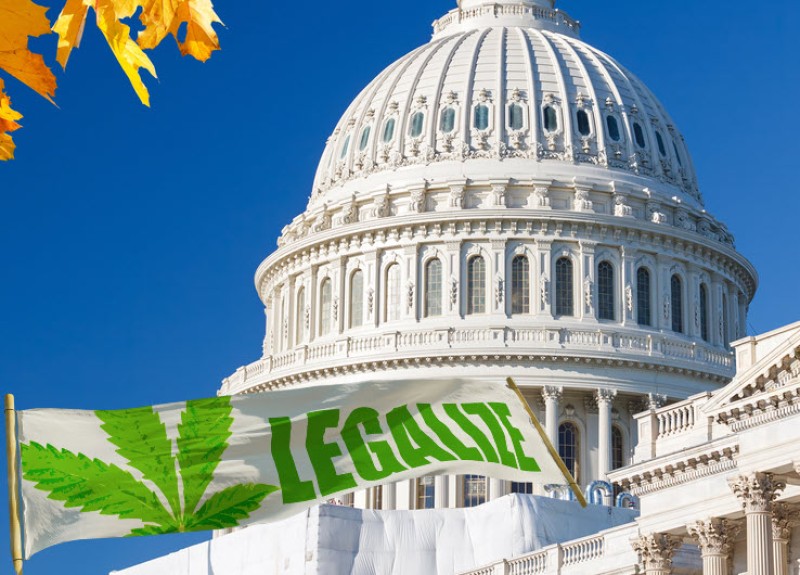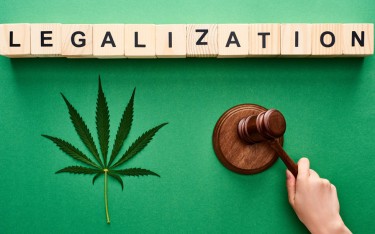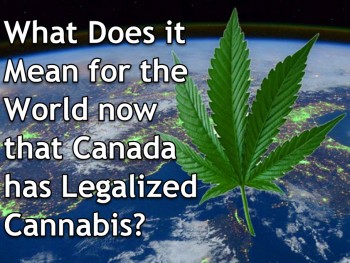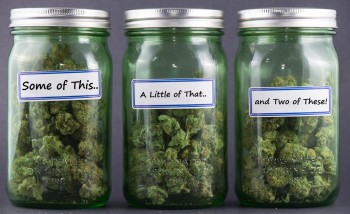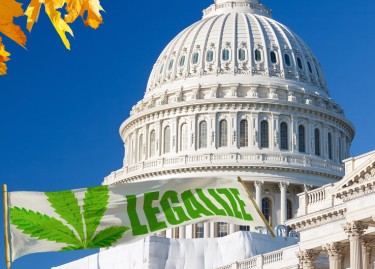
The People have Smoken – 57% of DEA Comments call for complete descheduling
In a surprising turn of events, our corporate and political overlords have finally conceded that cannabis might not be as dangerous as heroin after all. Their groundbreaking solution? To propose rescheduling marijuana from Schedule I to Schedule III under the Controlled Substances Act. It's almost as if they've realized that treating a plant with numerous medical benefits the same as the most dangerous narcotics might have been a tad misguided.
As part of this glacial progress towards sanity, the Drug Enforcement Administration (DEA) opened a public comment period to gauge the people's opinion on this monumental shift. Little did they know, they were about to get an earful.
While roughly 35% of respondents nodded along with the government's baby steps towards reform, the majority had a more radical idea in mind. A whopping 57% of comments called for complete descheduling of cannabis. That's right, folks – the people aren't just asking for a slightly looser leash; they're demanding the collar be removed entirely.
Is this a sign that the American public is ready to embrace a new era of cannabis policy? Have we finally reached a tipping point where the will of the people might actually influence drug legislation?
Before we break out the celebratory joints, let's take a closer look at what this unprecedented show of public support really means, and whether it stands a chance of swaying the powers that be. After all, when it comes to drug policy, the government has a long history of treating public opinion like a DEA agent treats a bag of evidence – something to be ignored or "misplaced" when inconvenient.
A Closer Look at the Findings
Let's dive deeper into the treasure trove of public opinion that the DEA's comment period unearthed. From May to July 2023, the agency received an unprecedented flood of nearly 43,000 comments, shattering previous records and making it clear that Americans have strong feelings about cannabis policy.
The numbers tell a compelling story. According to an analysis by industry firm Headset, a mere 8% of commenters believed marijuana should remain in Schedule I. Meanwhile, 35% agreed with the Biden administration's proposal to move it to Schedule III. But the real showstopper? A resounding 57% of respondents called for complete descheduling, effectively removing cannabis from the Controlled Substances Act altogether.
These statistics paint a clear picture: over 9 out of 10 individuals who took the time to comment believe that cannabis should not remain a Schedule I substance. The people have spoken, and they're demanding more than just a slight relaxation of restrictions.
Digging into the comments themselves reveals passionate pleas for reform. One commenter wrote, "Cannabis has been wrongfully criminalized for far too long. It's time to right this historical wrong and fully deschedule marijuana." Another argued, "Rescheduling to Schedule III is not enough. We need complete descheduling to address the racial injustices perpetuated by the war on drugs."
The Drug Policy Alliance's analysis found that 42.4% of comments mentioned the need for federal marijuana reform to advance racial justice or social equity. This underscores a growing awareness of the disproportionate impact cannabis criminalization has had on communities of color.
The overwhelming support for more comprehensive reform than what the government has proposed raises a crucial question: If the Biden administration doesn't heed this clear mandate from the people, who are they really serving? The disconnect between public opinion and government action suggests that corporate interests and entrenched bureaucratic resistance may be holding more sway than the will of the citizens.
So, what's next in this process? Now that the comment period has closed, the DEA and other relevant agencies will review the feedback. There may be an administrative hearing to gather additional input before any rule is finalized and formally adopted. However, given the clear public sentiment, anything short of complete descheduling is likely to be seen as an inadequate half-measure.
The ball is now in the government's court. Will they listen to the overwhelming majority calling for complete descheduling, or will they stick to their more conservative proposal? Their decision will speak volumes about whose interests truly guide federal drug policy.
As we await the next steps, one thing is clear: the American public is ready for a dramatic shift in how we approach cannabis. The people have moved beyond accepting the government's crumbs of reform and are now demanding the whole loaf. Whether our elected officials and bureaucrats will rise to meet this challenge remains to be seen, but one thing is certain – the pressure for real, substantive change is mounting, and it's becoming increasingly difficult to ignore.
The Sticky Bottomline
The verdict is in, and it's crystal clear: the American people aren't just asking for a minor tweak to cannabis laws; they're demanding a complete overhaul of the system. But why stop there? Perhaps it's time to reconsider the entire Controlled Substances Act (CSA) and fundamentally renegotiate our relationship with drugs in general. After all, if we've been this wrong about cannabis for so long, what other substances might we be misjudging?
Let's face it: cannabis is by far one of the safest recreational substances when compared to other legal drugs like alcohol or tobacco. Yet, for over five decades, it's been languishing in the most restrictive category of the CSA, rubbing shoulders with drugs that make it look like a gentle herbal tea in comparison. This glaring inconsistency has persisted despite mountains of evidence supporting cannabis's relative safety and potential benefits. It's a testament to the power of outdated ideologies and vested interests in shaping drug policy.
But times are changing, and momentum is on our side. The cannabis industry now employs tens of thousands of people, generates billions in revenue, and has become an integral part of many state economies. It's safe to say that cannabis is here to stay, no matter how much prohibitionists might gnash their teeth. The genie is out of the bottle, and no amount of fear-mongering or outdated propaganda can stuff it back in.
However, we can't rest on our laurels just yet. While the proposed move to Schedule III might seem like progress, it's likely to face fierce opposition. Anti-cannabis forces will probably litigate the living daylights out of it, tying up the process in legal red tape for years to come. This means that, ironically, the same body that criminalized cannabis in the first place may need to be the one to decriminalize it: Congress.
So, what's the path forward? It's time to turn up the heat on our elected representatives. If you want to see real change, start blowing up your congressional representatives' phone lines. Email them, tweet at them, show up at their town halls. Make it impossible for them to ignore the overwhelming public support for cannabis reform. Remind them that their job is to represent the will of the people, not to cling to outdated policies that serve no one but special interests.
The sticky bottom line is this: we're at a crucial juncture in the fight for sensible drug policy. The public comments on rescheduling have shown that Americans are ready for more than just incremental change. We're ready for a complete paradigm shift in how we approach cannabis and, by extension, all drugs. The question now is whether our political system is capable of rising to meet this challenge.
As we move forward, let's not lose sight of the bigger picture. This isn't just about cannabis; it's about personal freedom, social justice, and evidence-based policy. It's about creating a society that treats drug use as a public health issue rather than a criminal one. It's about acknowledging that the war on drugs has been a colossal failure and charting a new course.
So keep pushing, keep advocating, and keep the pressure on. The path to true reform may be long and winding, but with persistence and unity, we can bring about the change we want to see. The people have spoken – now it's time for the powers that be to listen.
